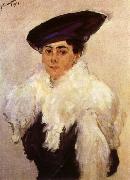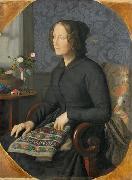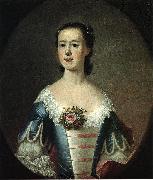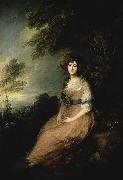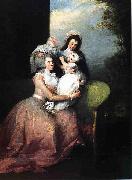Wholesale Oil Painting No Minimum |
|||||||||||
|
|
|||||||||||

|
|||||||||||
|
|
|
||||||||
Max LiebermannGerman Impressionist Painter, 1847-1935 Max Liebermann (July 20 1847 ?C February 8 1935) was a German painter and printmaker in etching and lithography. The son of a Jewish businessman from Berlin, Liebermann first studied law and philosophy at the University of Berlin, but later studied painting and drawing in Weimar in 1869, in Paris in 1872, and in the Netherlands in 1876-77. During the Franco-Prussian War (1870?C71), Liebermann served as a medic with the Order of St. John near Metz. After living and working for some time in Munich, he finally returned to Berlin in 1884, where he remained for the rest of his life. He was married in 1884 to Martha Liebermann (1857-1943, see portrait by Anders Zorn). Together with Lovis Corinth and Max Slevogt, Liebermann became an exponent of German Impressionism. He used his own inherited wealth to assemble an impressive collection of French Impressionist works. He later chose scenes of the bourgeoisie, as well as aspects of his garden near Lake Wannsee, as motifs for his paintings. In Berlin, he became a famous painter of portraits; his work is especially close in spirit to Édouard Manet. "Boys Bathing" Neue PinakothekFrom 1899 to 1911 he led the premier avant-garde formation in Germany, the Berliner Secession. Beginning in 1920 he was president of the Prussian Academy of Arts. In 1933 he resigned when the academy decided to no longer exhibit works by Jewish artists. While watching the Nazis celebrate their victory by marching through the Brandenburg Gate, Liebermann was reported to have commented: "Ich kann gar nicht so viel fressen, wie ich kotzen möchte" ("I could not eat as much as I would like to vomit.") On 30 April 2006, the Max Liebermann Society opened a permanent museum in the Liebermann family's villa in Berlin-Wannsee. The artist's wife, Martha Liebermann, was forced to sell the building in 1940. In 1943 she committed suicide in the family home, Haus Liebermann, hours before police came to deport her to Theresienstadt concentration camp. |
||||||||
|
|
||||||||
Portrait of Mrs
Portrait of Mrs Painting ID:: 54329 |
mk235
c.1917
Oil on canvas
71x52cm
mk235 c.1917 Oil on canvas 71x52cm |
|||||||
|
|
||||||||
Henri-Pierre Picou(27 February 1824 - 17 July 1895) was a French painter born in Nantes.His oeuvre began with portraits and classical historical subject matter but he later moved on to allegorical and mythological themes.He was an academic painter and one of the founders of the Neo-Grec school, along with his close friends Gustave Boulanger, Jean-L??on G??rôme, and Jean-Louis Hamon, also academic painters. All of them studied in the workshops of both Paul Delaroche and later Charles Gleyre. Picou's style was noticeably influenced by Gleyre. While the rest of the group generally painted classical and mythological subjects, Picou also received commissions for large religious frescoes from many churches, including the Église Saint-Roch. His artistic debut was at the Salon in 1847. The next year he was awarded a second-class medal for his painting, Cl??opâtre et Antoine sur le Cydnus. Also known as Cleopatra on the Cydnus, it is commonly regarded as Picou's masterpiece. This showing at the Salon in 1848 was written about by the critic Th??ophile Gautier, who felt that the subject matter was too ambitious, but also said that "As it is, it gives the best hope for the future of the young artist, and ranks among the seven or eight most important paintings of the Salon.In 1875 the painting was exhibited in New York, and afterward found lodgment on the walls of a private art gallery in San Francisco.Picou maintained a large workshop in Paris on the Boulevard de Magenta, which provided him room to work on his expansive frescoes. His popularity continued to rise and he went on to win the Second Prix de Rome in 1853 for his painting, J??sus chassant les vendeurs du Temple (The Moneylenders Chased from the Temple), and another second-class medal for his Salon painting in 1857. From his debut in 1847, he was a regular at the Salon, showing almost every year until his final exhibit in 1893.He has been called the most fashionable painter towards the close of the Second French Empire |
||||||||
|
|
||||||||
|
|
Portrait of Mrs
Portrait of Mrs Painting ID:: 74741 |
1846(1846)
Medium Oil on canvas
Dimensions 100 X 80 cm (39.37 X 31.5 in)
cyf 1846(1846) Medium Oil on canvas Dimensions 100 X 80 cm (39.37 X 31.5 in) cyf |
||||||
|
|
||||||||
Jeremiah Theus(April 5, 1716 - May 17, 1774) was a Swiss-born American painter, primarily of portraits. He was active mainly around Charleston, South Carolina, in which city he remained almost without competition for the bulk of his career. Theus was born in the city of Chur, in the Swiss canton of Graubenden, and was the eldest child of Simeon and Anna Walser Thees. He was nineteen when he immigrated with his family to the Province of South Carolina, whose General Assembly had provided land grants and transport funds to encourage European Protestants to settle in the colony. Simeon Thes was given 250 acres (1.0 km2) of land along the Edisto River in what was then Orangeburgh Township, |
||||||||
|
|
||||||||
|
|
Portrait of Mrs
Portrait of Mrs Painting ID:: 78503 |
1755(1755)
Medium Oil on canvas
Dimensions 75.88 x 63.18 cm (29.9 x 24.9 in)
cyf 1755(1755) Medium Oil on canvas Dimensions 75.88 x 63.18 cm (29.9 x 24.9 in) cyf |
||||||
|
|
||||||||
Thomas Gainsborough1727-1788 British Thomas Gainsborough Locations English painter, draughtsman and printmaker. He was the contemporary and rival of Joshua Reynolds, who honoured him on 10 December 1788 with a valedictory Discourse (pubd London, 1789), in which he stated: If ever this nation should produce genius sufficient to acquire to us the honourable distinction of an English School, the name of Gainsborough will be transmitted to posterity, in the history of Art, among the very first of that rising name. He went on to consider Gainsborough portraits, landscapes and fancy pictures within the Old Master tradition, against which, in his view, modern painting had always to match itself. Reynolds was acknowledging a general opinion that Gainsborough was one of the most significant painters of their generation. Less ambitious than Reynolds in his portraits, he nevertheless painted with elegance and virtuosity. He founded his landscape manner largely on the study of northern European artists and developed a very beautiful and often poignant imagery of the British countryside. By the mid-1760s he was making formal allusions to a wide range of previous art, from Rubens and Watteau to, eventually, Claude and Titian. He was as various in his drawings and was among the first to take up the new printmaking techniques of aquatint and soft-ground etching. Because his friend, the musician and painter William Jackson (1730-1803), claimed that Gainsborough detested reading, there has been a tendency to deny him any literacy. He was, nevertheless, as his surviving letters show, verbally adept, extremely witty and highly cultured. He loved music and performed well. He was a person of rapidly changing moods, humorous, brilliant and witty. At the time of his death he was expanding the range of his art, having lived through one of the more complex and creative phases in the history of British painting. He painted with unmatched skill and bravura; while giving the impression of a kind of holy innocence, he was among the most artistically learned and sophisticated painters of his generation. It has been usual to consider his career in terms of the rivalry with Reynolds that was acknowledged by their contemporaries; while Reynolds maintained an intellectual and academic ideal of art, Gainsborough grounded his imagery on contemporary life, maintaining an aesthetic outlook previously given its most powerful expression by William Hogarth. His portraits, landscapes and subject pictures are only now coming to be studied in all their complexity; having previously been viewed as being isolated from the social, philosophical and ideological currents of their time, they have yet to be fully related to them. It is clear, however, that his landscapes and rural pieces, and some of his portraits, were as significant as Reynolds acknowledged them to be in 1788. |
||||||||
|
|
||||||||
|
|
Portrait of Mrs
Portrait of Mrs Painting ID:: 78640 |
1785-1786
Medium Oil on canvas
Dimensions 220 x 154 cm (86.6 x 60.6 in)
cyf 1785-1786 Medium Oil on canvas Dimensions 220 x 154 cm (86.6 x 60.6 in) cyf |
||||||
|
|
||||||||
John Trumbull1756-1843 John Trumbull Gallery Trumbull was born in Lebanon, Connecticut, to Jonathan Trumbull, who was Governor of Connecticut from 1769 to 1784. He entered the 1771 junior class at Harvard University at age fifteen and graduated in 1773. Due to a childhood accident, Trumbull lost use of one eye, which may have influenced his detailed painting style. As a soldier in the American Revolutionary War, Trumbull rendered a particular service at Boston by sketching plans of the British works, and witnessed the famous Battle of Bunker Hill. He was appointed second personal aide to General George Washington, and in June 1776 deputy adjutant-general to General Horatio Gates, but resigned from the army in 1777. In 1780 he traveled to London where he studied under Benjamin West, who suggested to him that he paint small pictures of the War of Independence and miniature portraits, of which he produced about 250 in his lifetime. On September 23, 1780 and October 2, 1780, British agent Major John Andr?? was, respectively, captured and hanged as a spy in America. News reached Europe, and as an officer of similar rank as Andr?? in the Continental Army, Trumbull was imprisoned for seven months in London's Tothill Fields Bridewell. In 1784 he was again in London working under West, in whose studio he painted his Battle of Bunker Hill and Death of Montgomery, both of which are now in the Yale University Art Gallery. In 1785 Trumbull went to Paris, where he made portrait sketches of French officers for The Surrender of Cornwallis, and began, with the assistance of Jefferson, Declaration of Independence, well-known from the engraving by Asher Brown Durand. This latter painting was purchased by the United States Congress along with his Surrender of General Burgoyne, Surrender at Yorktown, and Washington Resigning his Commission, and these paintings now hang in the United States Capitol. Trumbull's The Sortie Made by the Garrison of Gibraltar, 1789, owned by the Boston Athenaeum, is now in the Boston Museum of Fine Arts. |
||||||||
|
|
||||||||
|
|
Portrait of Mrs
Portrait of Mrs Painting ID:: 82819 |
ca. 1785(1785)
Medium Oil on canvas
cyf ca. 1785(1785) Medium Oil on canvas cyf |
||||||
|
|
||||||||
|
John Trumbull 1756-1843 John Trumbull Gallery Trumbull was born in Lebanon, Connecticut, to Jonathan Trumbull, who was Governor of Connecticut from 1769 to 1784. He entered the 1771 junior class at Harvard University at age fifteen and graduated in 1773. Due to a childhood accident, Trumbull lost use of one eye, which may have influenced his detailed painting style. As a soldier in the American Revolutionary War, Trumbull rendered a particular service at Boston by sketching plans of the British works, and witnessed the famous Battle of Bunker Hill. He was appointed second personal aide to General George Washington, and in June 1776 deputy adjutant-general to General Horatio Gates, but resigned from the army in 1777. In 1780 he traveled to London where he studied under Benjamin West, who suggested to him that he paint small pictures of the War of Independence and miniature portraits, of which he produced about 250 in his lifetime. On September 23, 1780 and October 2, 1780, British agent Major John Andr?? was, respectively, captured and hanged as a spy in America. News reached Europe, and as an officer of similar rank as Andr?? in the Continental Army, Trumbull was imprisoned for seven months in London's Tothill Fields Bridewell. In 1784 he was again in London working under West, in whose studio he painted his Battle of Bunker Hill and Death of Montgomery, both of which are now in the Yale University Art Gallery. In 1785 Trumbull went to Paris, where he made portrait sketches of French officers for The Surrender of Cornwallis, and began, with the assistance of Jefferson, Declaration of Independence, well-known from the engraving by Asher Brown Durand. This latter painting was purchased by the United States Congress along with his Surrender of General Burgoyne, Surrender at Yorktown, and Washington Resigning his Commission, and these paintings now hang in the United States Capitol. Trumbull's The Sortie Made by the Garrison of Gibraltar, 1789, owned by the Boston Athenaeum, is now in the Boston Museum of Fine Arts. Portrait of Mrs ca. 1785(1785) Medium Oil on canvas cyf |
||||||||
|
|
||||||||
|
Prev Next
|
||||||||
|
|
||||||||
|
Related Paintings to John Trumbull :. |
||||||||
|
|
||||||||
|
CONTACT US |
